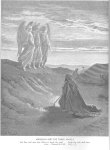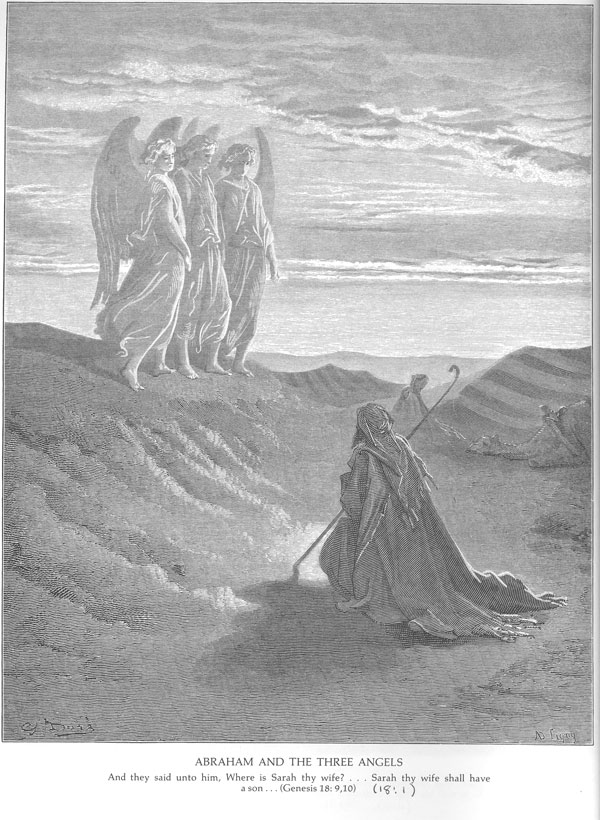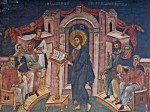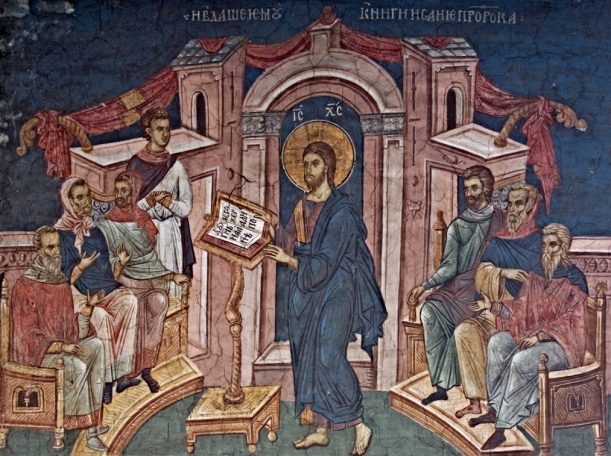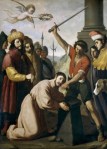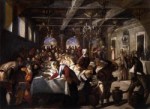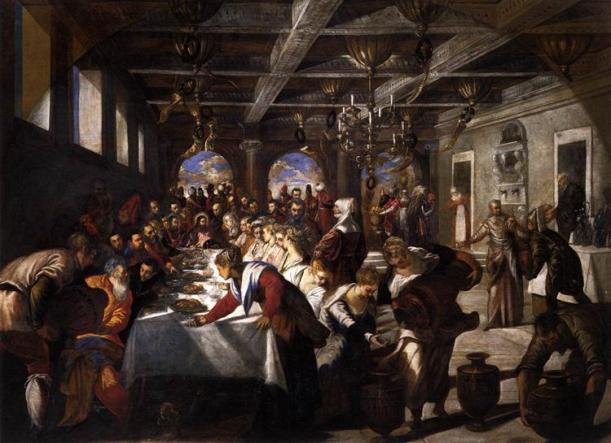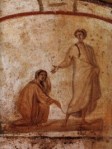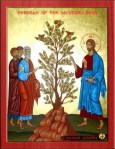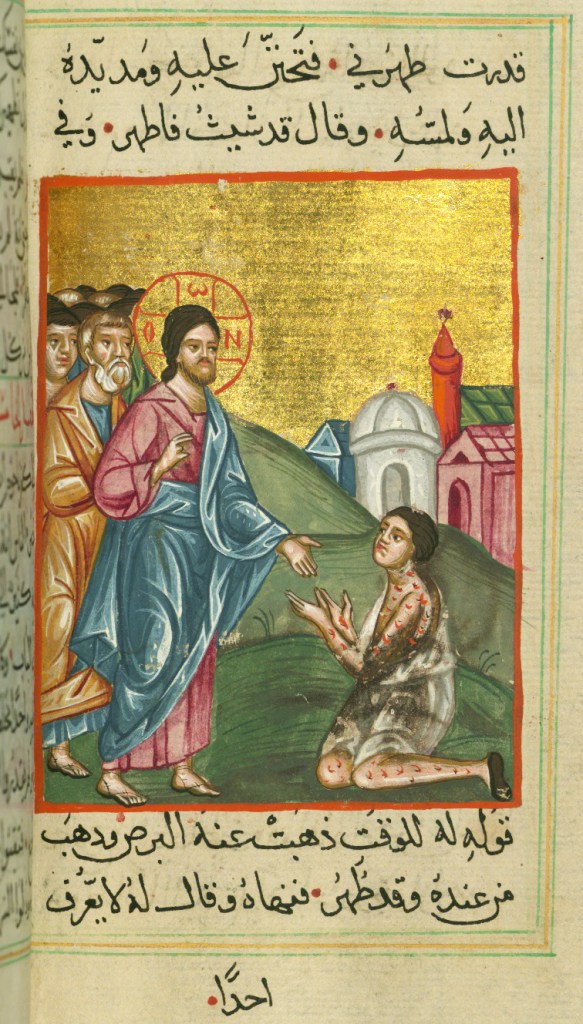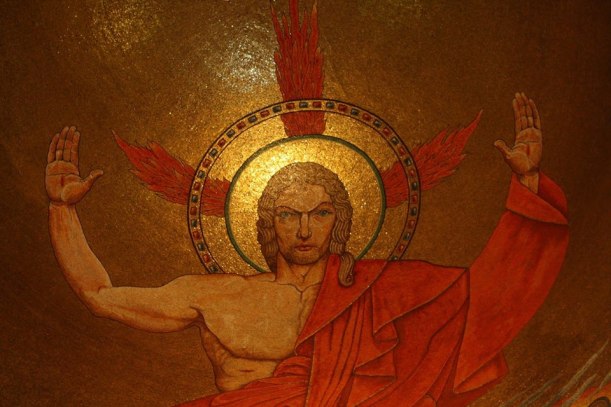
Christ in Majesty, Jan Henryk de Rosen, 1959, mosaic, Basilica of the National Shrine of the Immaculate Conception, Washington, D.C.
‘Do you suppose that I am here to bring peace on earth? No, I tell you, but rather division. For from now on a household of five will be divided: three against two and two against three; the father divided against the son, son against father, mother against daughter, daughter against mother, mother-in-law against daughter-in-law, daughter-in-law against mother-in-law.’ (Luke 12:49-52)
Wait a second, didn’t Jesus say, “Peace I leave with you, my peace I give to you?” (John 14:27) And now he’s saying he’s come to bring division? How can both of these statements be true?
Easy. When Jesus is talking about giving us peace, he means that one of the fruits of the Holy Spirit is that we will have peace in our hearts. When we stay close to Christ and are filled with the Holy Spirit, we will experience a profound peace, in spite of any difficulties that may arise.
But there are many in the world who will see Christians as an enemy or a cause of division, because we do not (or should not, if we are being faithful) compromise on truth. And this will lead others to hate us or think we are insane. Those who do not follow Christ may, if they choose, decide to persecute us, take us to court or remove privileges (such as tax-free status) from us. So it is that some of our family members will turn away from us, because we refuse to lie. Now for some examples of lies we have to resist in our popular culture today:
- We refuse to agree that an unborn child is just a clump of cells whose rights are trumped by the mother’s rights, but we say the developing human embryo or foetus is an individual worthy of respect, and that God intends the existence of each child:
‘Before I formed you in the womb I knew you,
and before you were born I consecrated you’ (Jeremiah 1:5)
- We refuse to agree that two men or two women in a sexual relationship are equivalent to the free, total, faithful and fruitful marriage of a man and a woman whose bodies are by nature complementary to one another. If you’re going to deface language by calling homosexual unions marriage, then we need a new name to define that kind of marriage which is made of opposite-sex partners, freely chosen, faithfully held, and open to fruitfulness.
- We refuse to be quiet about saying that it is in the best interests of a child to have both a mother and a father.
- We refuse to agree with the laughable suggestion that a person can choose their gender. People with gender dysphoria need counselling to treat their disorder, not pandering to affirm their disorder.
- We refuse to believe the lies that are told about certain other religions. [The Archdiocesan Media Office has just phoned me and asked me to tone down the paragraph I had previously written here (!!), as they thought I was being inflammatory.] I will merely refer you to this article, for an indication of what I was driving at.
We Christians should not be afraid to speak the truth. But the truth must be spoken with love. We should not be the ones who start war and division, but if others choose to hate us or call us names, this just demonstrates that their arguments are so weak that they have to resort to name-calling. We should return their hate with unconditional love. Unconditional love doesn’t mean agreement, but it may mean reaching out with a smile and in friendship. It may mean being an uncomplaining victim. I stress the word uncomplaining because we need to model Jesus in this, and not be like all the other victim groups out there in SJW world. Jesus, even though God incarnate, did not resist persecution, but offered himself up ‘as a lamb to the slaughter’, so that we might be saved from our sinfulness.
God’s love is like a fire: burning up the dross and purifying the world. This is why Jesus says to us today:
I have come to bring fire to the earth, and how I wish it were blazing already!
Today’s readings:
Word format: Year C 20th Sunday 2016
Pdf format: Year C 20th Sunday 2016


